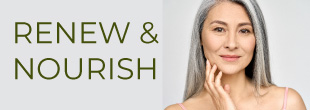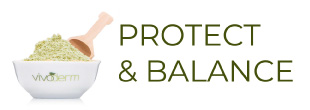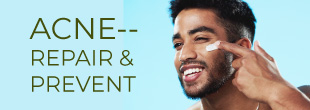Benzoyl Peroxide and Tretinoin
When applying antiacne drugs to the skin, people should be careful not to get the medicine in the eyes, mouth, or inside the nose. They should not put the medicine on skin that is wind burned, sunburned, or irritated, and not apply it to open wounds.
Because antiacne drugs such as benzoyl peroxide and tretinoin irritate the skin slightly, users should avoid doing anything that might cause further irritation. They should wash the face with mild soap and water only two or three times a day, unless the physician says to wash it more often. They should also avoid using abrasive soaps or cleansers and products that might dry the skin or make it peel, such as medicated cosmetics, cleansers that contain alcohol, or other acne products that contain resorcinol, sulfur, or salicylic acid.
If benzoyl peroxide or tretinoin make the skin too red or too dry or cause too much peeling, the user should check with a physician. Using the medicine less often or using a weaker strength may be necessary. Benzoyl peroxide can irritate the skin of people with skin of color and cause darkened spots called hyperpigmentation on the skin. Benzoyl peroxide may discolor hair or colored fabrics.
ORAL DRUGS. Oral antibiotics are taken daily for two to four months. The drugs used include tetracycline, erythromycin, minocycline (Minocin), doxycycline, clindamycin (Cleocin), and trimethoprim-sulfamethoxazole (Bactrim, Septra). Possible side effects include allergic reactions, stomach upset, vaginal yeast infections, dizziness, and tooth discoloration.
The goal of treating moderate acne is to decrease inflammation and prevent new comedones from forming. One effective treatment is topical tretinoin, used along with a topical or oral antibiotic. A combination of topical benzoyl peroxide and erythromycin is also very effective. Improvement is normally seen within four to six weeks, but treatment is maintained for at least two to four months.
Special Conditions
People who have certain medical conditions or who are taking certain other medicines may have problems if they use antiacne drugs. Before using these products, the physician should be informed about any of the following conditions.
ALLERGIES. Anyone who has had unusual reactions to etretinate, isotretinoin, tretinoin, vitamin A preparations, or benzoyl peroxide in the past should let the physician know before using an antiacne drug. The physician should also be told about any allergies to foods, dyes, preservatives, or other substances.
PREGNANCY. Teens who are pregnant or who may become pregnant should check with a physician before using tretinoin or benzoyl peroxide. Isotretinoin causes birth defects in humans and must not be used during pregnancy.
OTHER MEDICAL CONDITIONS. Before using antiacne drugs applied to the skin, people with any of these medical problems should make sure their physicians are aware of their conditions:
• Eczema. Antiacne drugs that are applied to the skin may make this condition worse.
• Sunburn or raw skin. Antiacne drugs that are applied to the skin may increase the pain and irritation of these conditions.
In people with certain medical conditions, isotretinoin may increase the amount of triglyceride (a fatty-substance) in the blood. This may lead to heart or blood vessel problems. Before using isotretinoin, adolescents with any of the following medical problems should make sure their physicians are aware of their conditions:
• alcoholism or heavy drinking, currently or in the past
• diabetes or family history of diabetes (Isotretinoin may change blood sugar levels.)
• family history of high triglyceride levels in the blood
• severe weight problems
Using antiacne drugs with certain other drugs may affect the way the drugs work or may increase the chance of side effects.
Tags: Acne, creams, Dry, dry skin, flaking, moisturizer, redness, Retinoids, tretinoin, wrinkles




